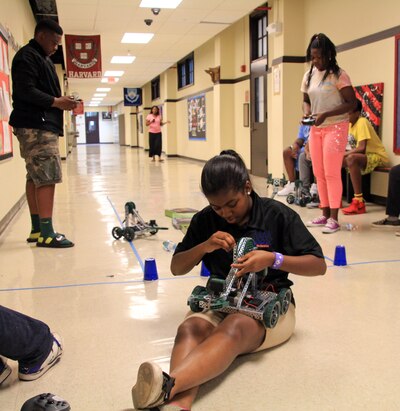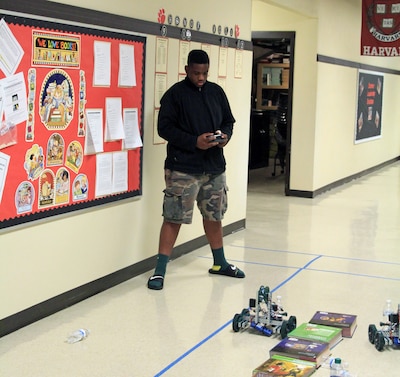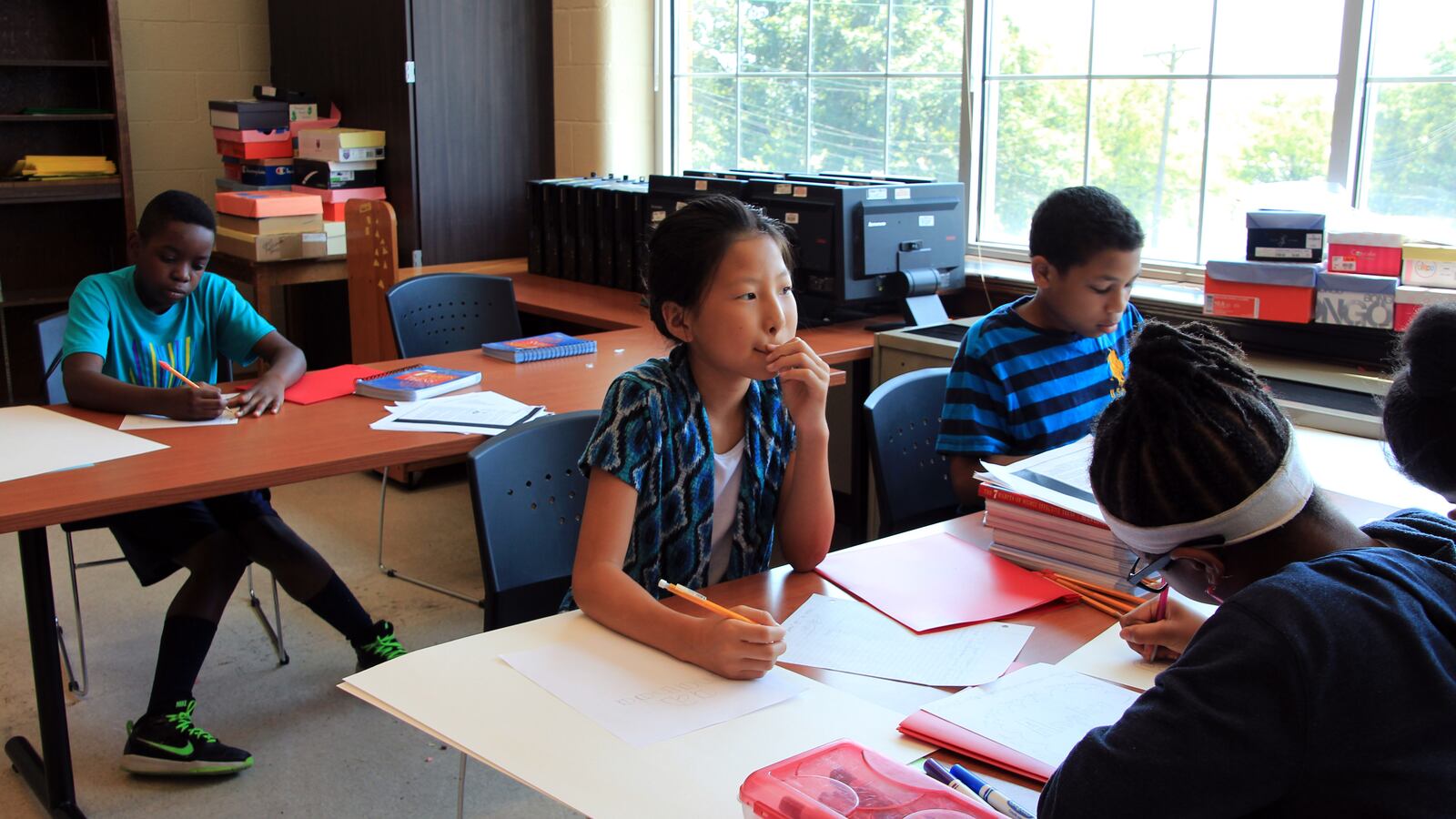A typical summer day for 10-year-old Amanda Zhou is spent watching television, especially the show “Dance Moms.”
During June, however, Amanda becomes a budding engineer. As one of 200 participants in the Shelby County Summer Leadership Camp, she’s building solar-powered robots, learning leadership skills and making new friends.
The Memphis camp, serving mostly low-income students in grades 5-8, provides fun hands-on activities focused on science, technology, engineering and math, while also incorporating reading and writing into daily leadership classes.
While all students can fall behind academically during the summer break from school, students from low-income families are affected disproportionately.
According to the National Summer Learning Association, low-income students lose two to three months in reading achievement over the summer, while their higher-income peers tend to make slight gains. Additionally, most students lose about two months of grade-level equivalency in math skills during the summer. By the fifth grade, cumulative years of summer learning loss can leave low-income students up to three years behind their peers. And more than half of the achievement gap accumulated by ninth grade is attributed to summer learning loss.
Summer programs such as the Leadership Camp are working to reverse such trends, in tandem with efforts by Shelby County Schools to lift lagging student test scores. However, declining revenues have forced the district to decrease this year’s summer school budget by 35 percent, and expiring grants are threatening the existence of some summer programs altogether.
In Memphis and Shelby County, where economically disadvantaged students comprise 69 percent of the district, summer learning loss becomes a foundational challenge for both students and teachers as the new school year begins. Most students lose ground in math and reading.

Nikki Wilks, an English teacher at Kingsbury High School, deals with the repercussions every fall.
“It’s really obvious when a student goes from reading every day during the school year to nothing at all for months,” Wilks said. “It’s frustrating for teachers because we spend weeks remediating, and it’s devastating for some of our kids who drop even further behind their peers.”
Wilks sees evidence of “summer slide” in her students’ ACT scores, which typically have been lower in the fall than in the previous spring.
Research spanning across a century shows that students generally score lower on standardized tests at the end of summer break than at the end of a school year, according to a 2007 article published in the American Sociological Review.
Matt Campbell, a former Soulsville Charter School teacher, said an easy way to understand summer learning loss is through the “faucet theory.”
“When schools close for the summer, it’s like turning off a faucet that’s been providing a steady stream of water,” Campbell said. “Students whose parents can take them to museums or pay for camps can supplement that. Lower income students are just dry for two months.”
While few would disagree with the faucet theory, Campbell said society isn’t very serious about summer slide due to a nostalgic view of summer as a time of picnics in the park and trips to the beach. Even so, many children don’t live in safe neighborhoods where they can go outside and explore or have the opportunity to travel, leaving them to sit passively in front of a computer screen or TV.
“The question isn’t, ‘Does summer learning loss exists?’ The question is, ‘What do we do about it?’” said Campbell, now an assistant director at Memphis Teacher Residency. “If we’re going to get serious about stopping summer learning loss, it’s going to take a village.”
In cities like Memphis, the critical need for effective summer learning programs is conflicting with shrinking resources as school budgets are cut and federal and philanthropic grants are increasingly tapped.
For instance, the popular Summer Leadership Camp is funded by the federal Race to the Top grant, but that money dries up this summer. Now in its fifth year, the camp could expand its reach to a waiting list of children, but instead may shut down after this summer, said camp principal Michael Demster.
“We’ve got more than 200 kids here who are learning to love learning, but how many are at home right now?” Demster asked. “How many are plopped in front of a screen all summer, completely unengaged?”
A desire for more summer learning programs is documented among families. Nineteen percent of Tennesseans reported that their children took part in a summer learning program in the summer of 2009, while 56 said they were interested in their kids attending one, according to a 2010 report by the nonprofit Afterschool Alliance.
About 85 percent of Tennessee parents said they support public funding for summer learning programs, 3 percent higher than the national average, the report says.
While some parents have reached out Demster to ask if they can help with funding to keep the camp alive, he worries that charging a price would make the program inaccessible for students who could most benefit.
The average weekly cost of a summer program nationwide is $250 per student, which equates to nearly one-third of a weekly salary for a single parent earning the median income. Shelby County Schools provides summer school and programs at no cost to families, while other summer programs, such as at the YMCA or Boys and Girls Clubs, are offered throughout Memphis — but at a cost.

Because summer learning loss is a significant academic issue for Shelby County Schools, Demster hopes district officials and philanthropists identify summer learning programs as a good investment.
“We need more camps like this in Memphis, not less,” he said. “This is a need we as a community have to put at the top of our priority list.”
Fourteen-year-old Matthew Hill agrees. While working on a robot project during his second year at leadership camp, he said the program is his favorite part of summer, even more than football practice.
“Summer camp is so much different than school, but it’s funny, because you still learn so much,” Matthew said. “I know a lot of kids who don’t get to do anything like this. I know I’m lucky, because school isn’t as hard when it starts.”
Parent resources for combating summer slide at home can be found on the National Learning Association website.

